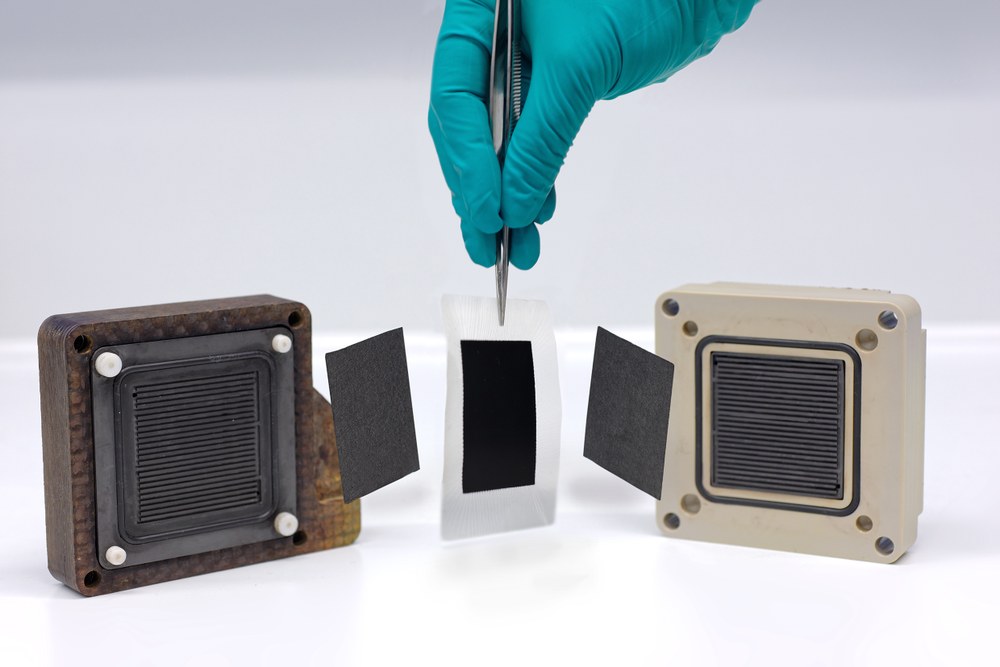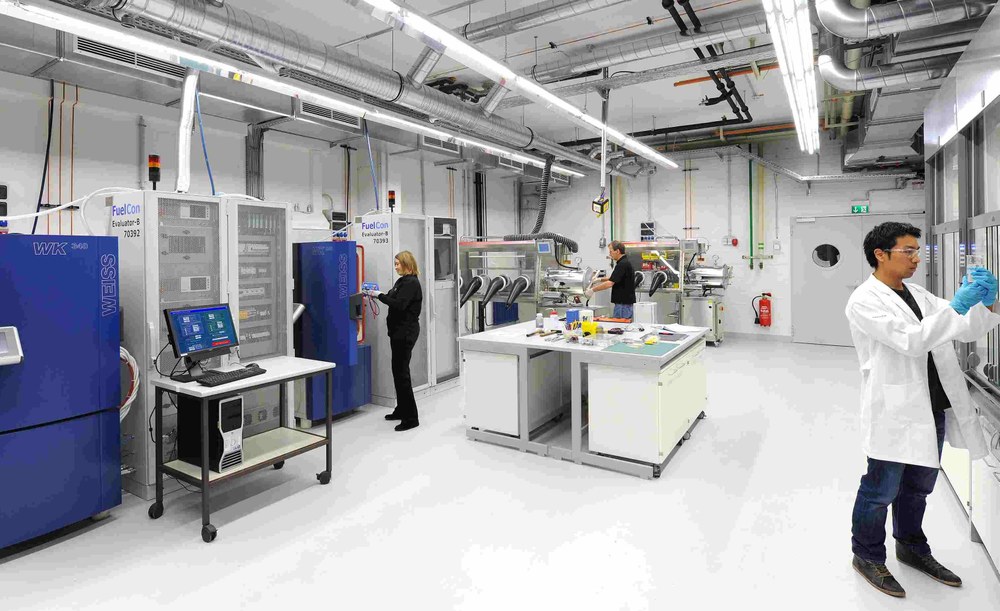Department Electrochemical Energy Technology

In the Electrochemical Energy Technology department, electrochemical reactors and storage systems play a key role in shaping our future with renewable energy from the sun and wind. These include batteries, fuel cells and electrolysers. They are essential building blocks for a future energy system that can be used in both stationary energy supply and electromobility.
Batteries make it possible to store generated electricity and use it on the move, while electrolysers convert excess electricity into hydrogen. This hydrogen is then used in fuel cells to generate energy. Our researchers are working intensively on new designs and manufacturing processes for these technologies. They are also optimising industrial systems and demonstrating their functionality on an industrial scale.
The challenge in research is to find solutions that fulfil the conflicting goals of efficiency, service life, comfort, safety and costs. Our team at the Stuttgart and Oldenburg sites is working on mastering these challenges.
Our main areas of work in the field of electrochemical energy storage include
- Fuel cells
- Batteries
- Electrolysers



Our main areas of research are
- The development of polymer electrolyte fuel cells (PEMFC) and electrolysers (PEMEL)
- The development of oxide ceramic fuel cells (SOFC) and electrolysers (SOEC)
- The improvement of lithium batteries, in particular lithium-air and lithium-sulphur batteries
- The reduction of damage in fuel cells, electrolysers and batteries and the investigation of their damage mechanisms
- The development of advanced cell concepts for higher power densities, longer operating times, lower material costs and greater robustness, The development of advanced cell concepts for higher power densities, longer runtimes, lower material costs and greater robustness
- Investigations on cells with innovative diagnostics, including in-situ and ex-situ methods
- The development of multi-scale models in collaboration with the "Computational Electrochemistry" department
- The identification of degradation mechanisms in fuel cells and batteries and strategies to prevent them
- The optimisation of system designs for applications in electrochemical energy technology
- The development of highly integrated systems for innovative applications in aviation and electromobility.
We are proud to be at the forefront of these technologies and to be making a significant contribution to shaping a sustainable energy future.
